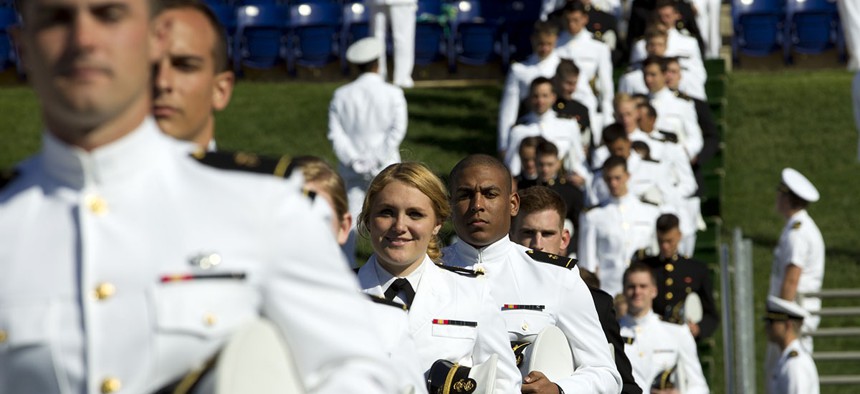Navy Is Trying to Deal with Its Sexual Assault Problem by Giving Sailors a Reporting App

Jose Luis Magana/Shutterstock.com
The branch is investing $150,000 into a 6-month pilot project to test the app.
In a bid to curb on-duty sexual assault between servicemen and women, the naval warfare branch of the U.S. armed forces is placing its bets on a smartphone app.
The U.S. Navy is investing $150,000 into a 6-month pilot project to test an app called LiveSafe, which was initially created to prevent on-campus gun violence. The project began roughly 30 days ago.
Co-founder Kristina Anderson, who was gravely injured during the 2007 Virginia Tech shootings that killed 32, thought the deadly attack could’ve been averted through crowdsourced intelligence. Working with developers, she created a platform where people could submit reports of suspicious activity four years ago.
Nearly 10 million people now use LiveSafe, the company says, reporting tips about theft, assault and more on college and corporate campuses across the U.S. Users can send in text, photographs, or video—anonymously, or with their name and contact info, if they choose (the platform also doesn’t store any of that data).
Navy personnel are often reluctant to file complaints of assault because, in large part because historically there’s been nothing to gain by doing so. A 2015 study by the Defense Department found in cases where the military could take action against sexual assault allegations, only 20 percent were prosecuted and 9 percent of offenders were eventually charged with a sex offense.
In May, Human Rights Watch accused the U.S. military of discharging ranks of rape survivors instead of the rapists—the DOD report also showed a third of the victims were let go, typically within seven months of filing their complaint.
LiveSafe can’t promise to repair the response rate in assault cases—the platform’s goal is to prevent them.
“The best tips that we get are the ones that say ‘this is probably nothing but…’” says CEO Carolyn Parent. “If they didn’t have the anonymity or the ease of mobile app, they wouldn’t have shared the information.” Once a user reports a red flag, a two-way chat with the relevant authority begins almost immediately.
The focus group for the trial, junior-enlisted sailors, can also send their location to a friend if they’re walking home late and the friend can virtually “walk home” with them by tracking their moves on the app. If someone doesn’t reach their destination in a timely manner, LiveSafe will alert their emergency contact.
Unfortunately, the app might end up a band-aid solution.
If a sailor experiences a sexual assault while on duty, the Navy’s website suggests he or she “try to resolve the issue using the Informal Resolution System (IRS) or report the incident to your command, or the (Equal Employment Opportunity/Equal Opportunity) office.”
The problem is that even if anonymity gives a victim the confidence to come forward, resolution depends on chain of command. Often, commanders do not want to take complaints to their superiors because the perceived lack of discipline within their troops can reflect badly on them and affect their chances of a promotion.
If the perpetrator him or herself is an officer, then there’s almost no chance an assault will be reported. And then, even after complaints are filed, being out in the ocean or the battlefield means men and women have to continue working alongside their attackers.
There is still hope the app can help. During the trial period, the Navy will assess the success of the app by checking how often people engage with it and collecting stories about any incidents it helped avert. If so, it could roll it out in more locations.





